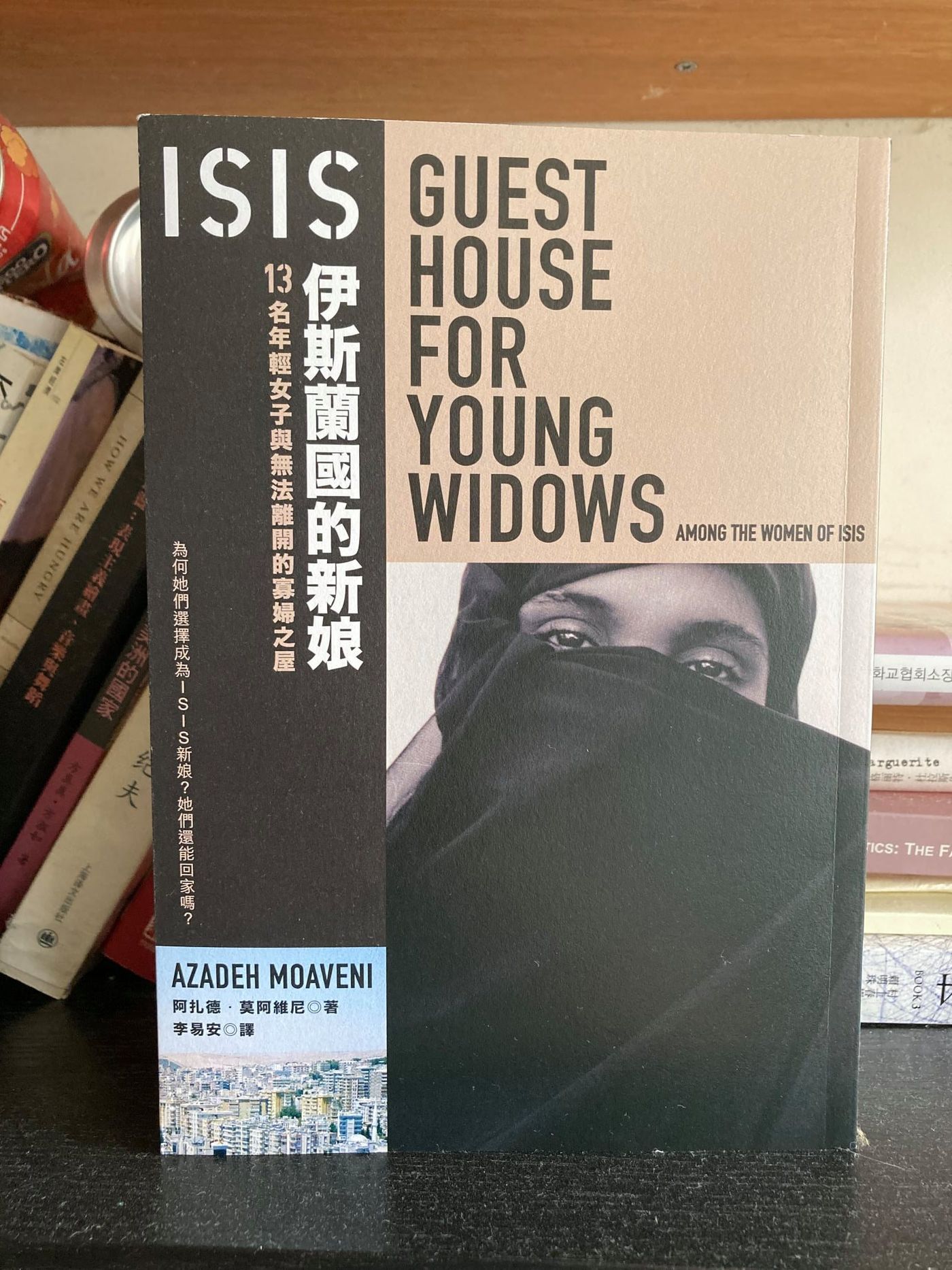
記者/譯者
ISIS brides, and the widow's house they can't leave

Good afternoon everyone, I'm here to promote the book news again!
What I want to share with you this time is my translation of the book "The Bride of the Islamic State" (click here to order the link), the theme is women in the "Islamic State" (ISIS); in the translation work I took over, this book is also My personal favorite top two.
In a sense, the Chinese translation of this book appeared just in time.
Since the Taliban took over Kabul in August 2021 and regained power in Afghanistan, many people have been worried about whether the space for Afghan women's public participation will be curtailed again; and with the Taliban in power, ISIS has once again returned to international news in the page.
It is a pity, however, that these concerns or reports not only rarely discuss the causes of the phenomenon in a deeper level, but also stereotype women's roles in Islamic society and Islam's attitudes towards women. See how women's life experiences as individuals, in different social contexts, influence their choices, positions and actions.
So this book, with the life stories of several female Muslims from Germany, Britain, Tunisia, and Syria, timely complements the microscopic perspective that we lack when watching international news.
More importantly, what this book tries to answer is indeed a question that puzzles many people: If organizations or regimes like the Taliban and ISIS are really "full of oppression against women", why are there still European women willing to? Go and work for them?
After reading this book, you may find that, for some European and North African women, "departing to ISIS" is sometimes a way for them to escape their original family, husband and in-law's family, allowing them to break their daily shackles; sometimes, It may be an act of "anti-body system" that can satisfy the rebellious aspirations of adolescent girls, or resist the oppression of secular elites and rulers.
Therefore, compared with the pull of ISIS, what really made them decide to go on the road may be more the push from their native family and society.
The author of the book, Azadeh Moaveni, is an Iranian-American journalist who spent three or four years tracking dozens of interviewees--it's really impressive to be able to focus on one topic for so long. I envy.
Some passages also opened my eyes. For example, the reason why a German girl converted to Islam was that "Muslim women are more feminine, and German girls don't like to dress up." I also broke into a cold sweat when I was checked by the border guards in the car—not so much a translator, but a book I couldn't bear to put down.
Moaveni also told us that the life story of the interviewee is often as important as the structural narrative behind it. The two levels of material must be constantly verified back and forth and dialogue with each other, rather than just one level leading the direction of the other: We must avoid being kidnapped by too large a macro narrative and applying structural theories too quickly to interpret phenomena.
However, as pointed out by many commentators, Moaveni, a descendant of Iranian descent who grew up and studied in the West, has a critical attitude towards the "anti-terrorism policies" of Western countries, but her knowledge framework when looking at gender issues, some Islamic Feminists may not all agree.
In addition, whether the microscopic personal stories in the book can really justify their decision to join ISIS is still the focus of debate among many commentators-especially recently, the British are still debating whether these British citizens who "decamped to ISIS" should Shouldn't they be readmitted and brought back to the UK?
But in any case, if you are curious about the situation of women in Islamic society and want to explore the role of gender issues in contemporary Islamic politics, then this book is still a very pleasant read. Entrance.
As a reporter, I have also learned a lot of interview and narrative skills in the process of translating. Therefore, if you are a reporter who is interested in investigative reporting and non-fiction writing, this book is also very worth reading. I highly recommend it. give everyone!
Note: If you are too lazy to read books, you can also watch this "movie" that takes place on the computer desktop throughout :
Like my work?
Don't forget to support or like, so I know you are with me..
Comment…